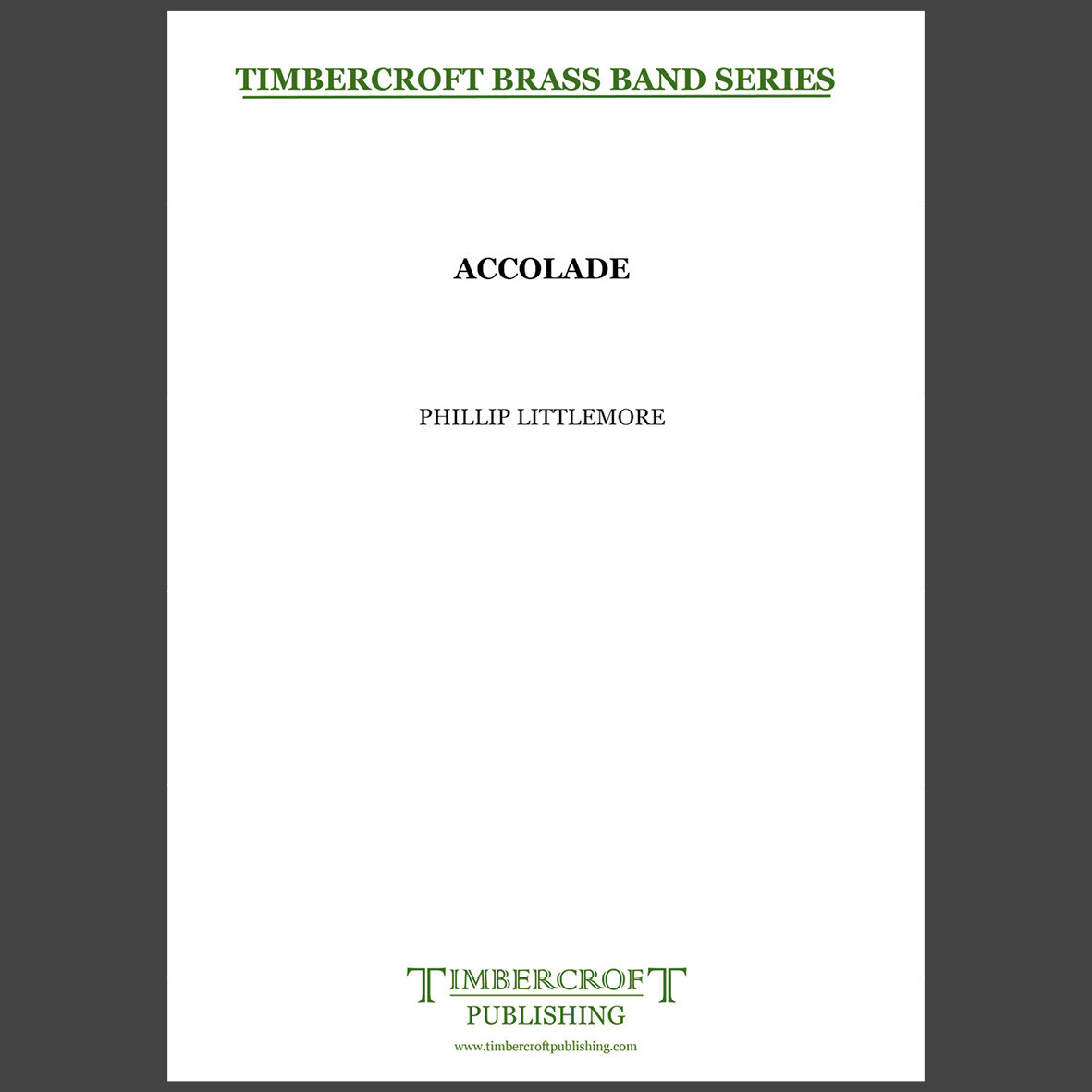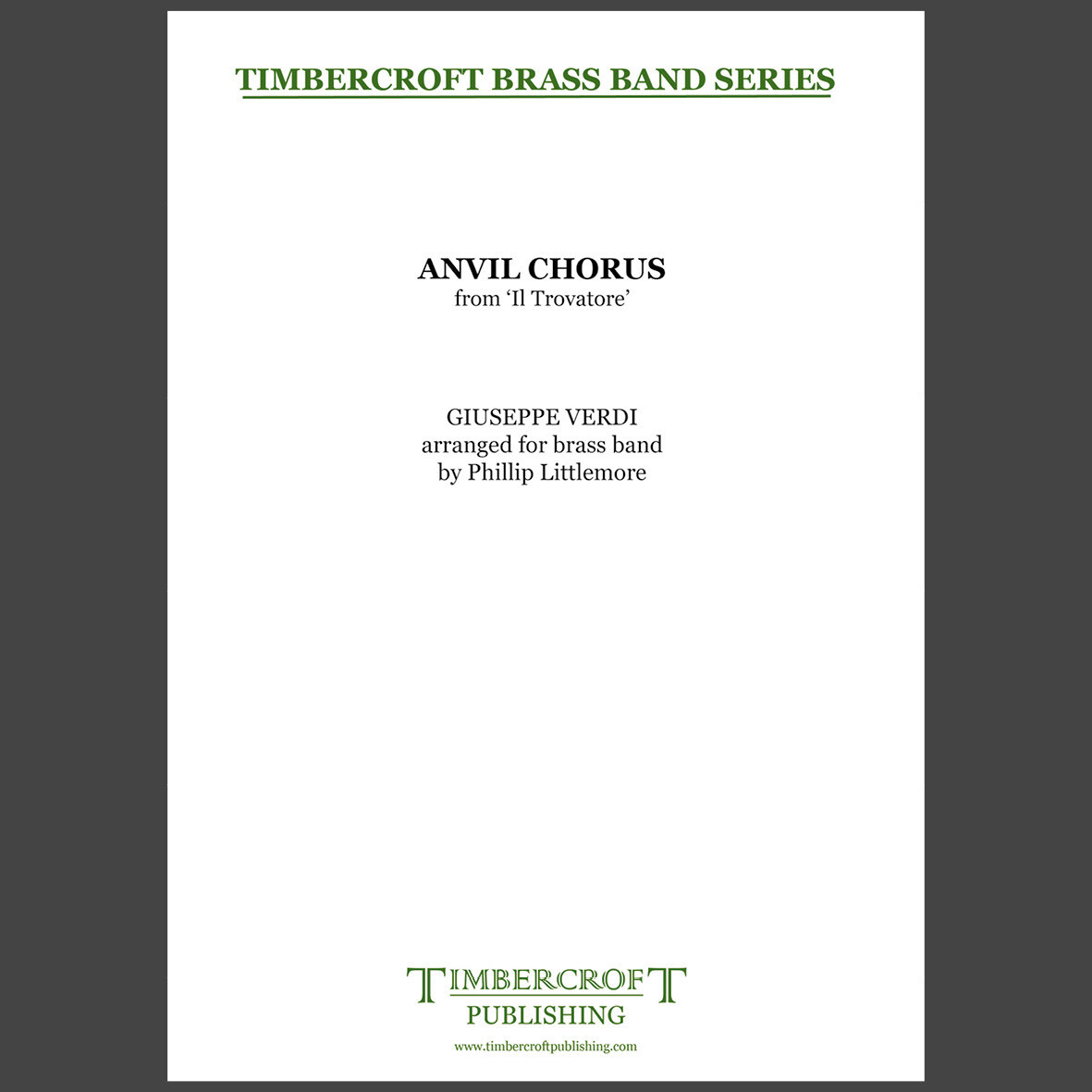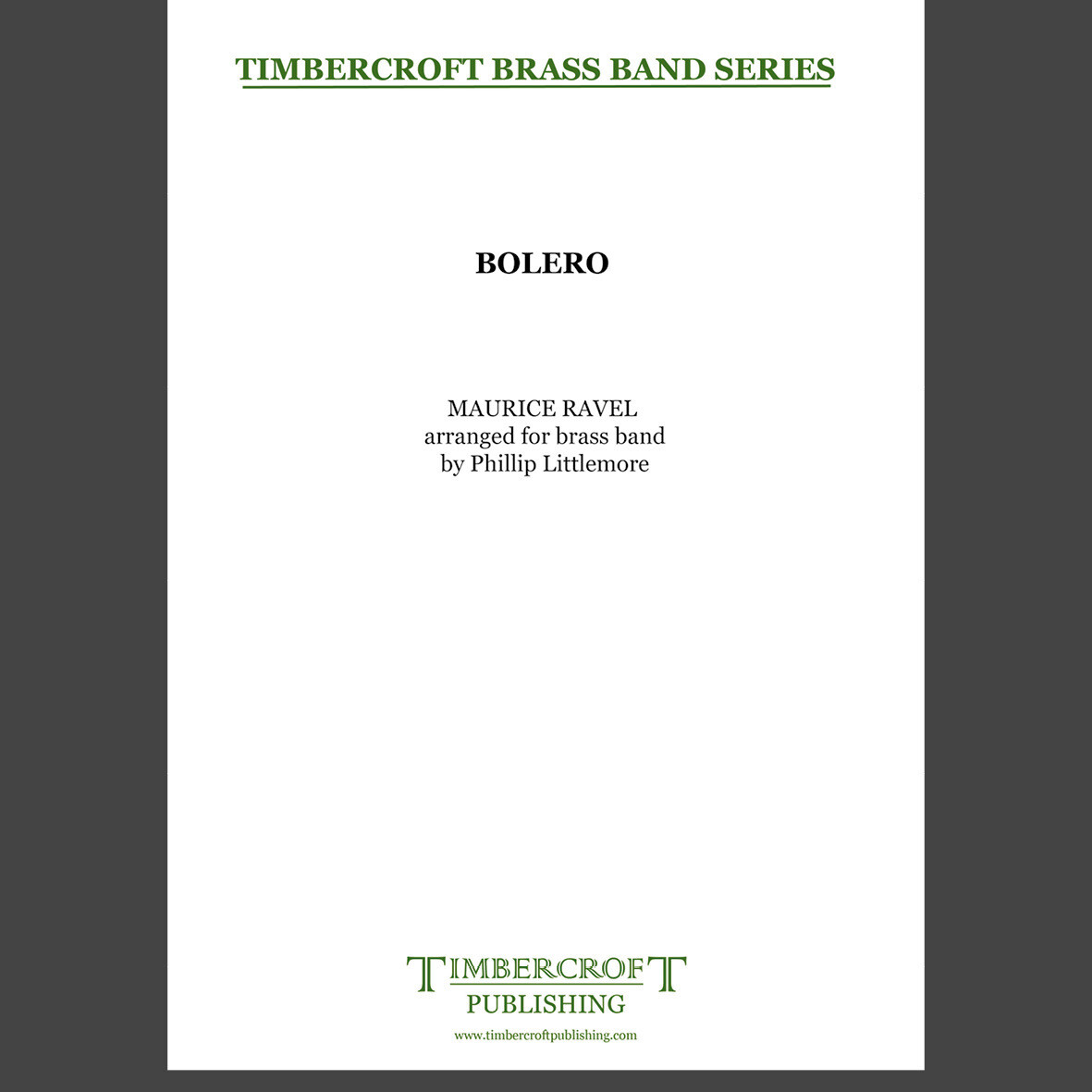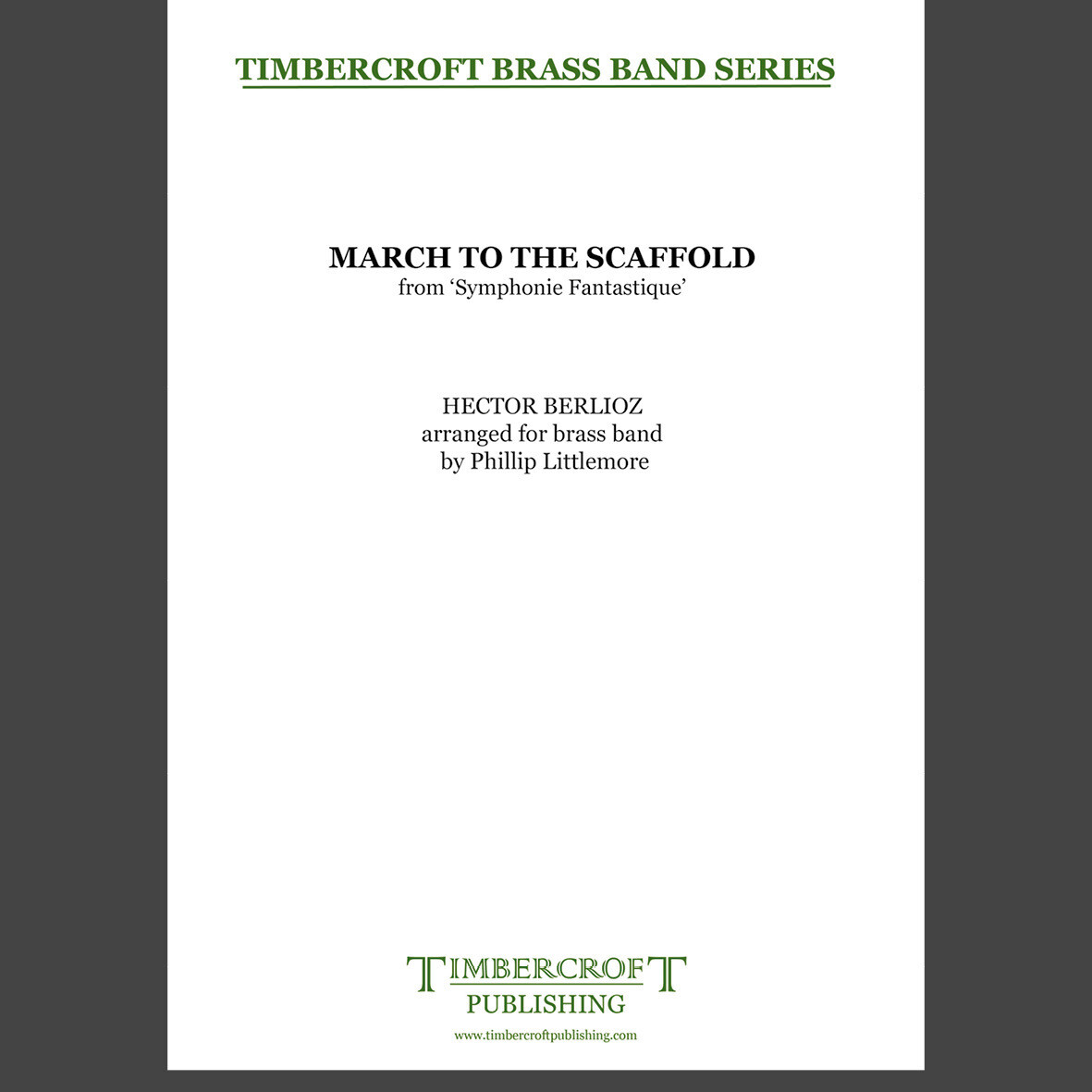Results
-
 £119.99
£119.99Stonehenge - Jan Van der Roost
This piece attempts to portray atmospheric pictures through music. The opening section evokes the somewhat misty and hazy early morning atmosphere surrounding the ancient monument. When the band reaches its first dynamic climax it is as if the massive boulders are audible, even touchable through the use of minor 3rd chords. The main theme - constructed on the notes CAFBG symbolises the arrangement of the central boulders in the shape of a horseshoe, which forms the focal point of this huge collection of stones. Towards the end of the work you will experience a fantastic effect when five soloists play a five part hymn whilst other members of the band create a specialatmosphere by imitating a choir of monks and druids. A fantastic major new concert work for advanced bands.
Estimated dispatch 5-14 working days
-
 £95.00
£95.00Penlee - Simon Dobson
To some, the tragic story of the Penlee lifeboat, Solomon Browne, would need no introduction, and to some the pain felt is still very much a reality. The composer, born just a few weeks before that fateful night on the19th December 1981, has created this work as a musical homage to the bravery of the souls who lost their lives and has dedicated it to their memory. Penlee was commissioned by the Cornwall Youth BrassBand using funds bequeathed by Michael Pickett. The first performance was given by the Cornish Youth Brass Band, conducted by Ian Porthouse, at St. Michael's Church, Newquay, on 30th December 2008.Penleehas been voted into the Classic FM Hall of Fame 2011 at No.106. Not only is it the first time a brass work has been featured in the Hall of Fame, but it was also thehighest new entry. The work has subsequently been recorded by the Leyland Band, conducted by Jason Katsikaris, on the CD entitled Penlee.Brass Band Grade 4: Advanced Youth and 3rd Section Duration: 13 minutes
Estimated dispatch 5-14 working days
-
 £40.00
£40.00The Nutcracker 'Sweet' - Pyotr Ilyich Tchaikovsky
Tchaikovskys ballet, The Nutcracker, is a fairy-ballet in two acts, three tableaux and was composed in 1891/2. It is based on The Nutcracker and the Mouse King, a story by E. T. A. Hoffmann (1816). Mark Freehhas arranged this Tchaikovsky classic for big band.Brass Band Grade 4: Advanced Youth and 3rd SectionDuration: 12 minutes
Estimated dispatch 5-14 working days
-
 £74.99
£74.99Olympus - Philip Harper
Selected as the test-piece for the 3rd Section Regional contests of the National Brass Band Championships 2012The music begins with a depiction of the exciting Opening Ceremony where noisy fanfares and sudden swells add to the cosmopolitan flag-waving clamour. Without a break the music leads to The Chariot Race, a fast compound-time gallop withthundering hooves in the basses and percussion, and a heroic melody introduced by the tenor horns. Chariot racing was the main equestrian event in the Ancient Greek Games, which were founded in memory of King Oenomaus. In the Greek legend he suffereddefeat in a chariot race to his son-in-law and Zeus' grandson, Pelops, but much of the music is bitter-sweet to symbolise the fact that Pelops had to cheat to win drawing parallels with some of the issues still facing modern-day athletics. A slow, mystical passage follows, describing The Temple of Zeus at Olympia. The statue of Zeus, who was honoured throughout the Ancient Games' history, was housed inside the temple and was one of the Seven Wonders of the Ancient World. Themusic depicts this period of the dawn of one of mankind's most ancient civilisations and there is a series of solo passages above a drone. The next section is called The Olympic Flame and a broad and lyrical anthem-like melody develops slowly in the euphoniums, which gradually ascends until the horns can take it over before passing upwards again to the cornets (Higher). The musicbursts into bright life at the lighting of the flame and the regular rhythmic pattern which has been established goes through an accelerando (Faster). The final section is called The Olympic Truce and aims to capture the cooperative spirit of the ancient practice of ending wars for the duration of the games. The anthem-like melody makes an affirmatory return (Stronger) and the work ends asit began with a blaze of colour and a real sense of optimism and global celebration. "Citius, Altius, Fortius" (Faster, Higher, Stonger)NOTES ON PERFORMANCEPercussion requirements: 1 to 3 players (3 Timpani, Snare Drum, Tenor Drum, Cymbals, Glockenspiel, Triangle)
Estimated dispatch 5-14 working days
-
 £59.95
£59.95Blitz - Derek Bourgeois
The dictionary definition of Blitz is any sudden, overwhelming attack, particularly from the air. It is shortened form of the German word Blitzkrieg, literally meaning a lightning war. The piece is a test of skill, nerve and stamina, culminating in an aural 'Blitz' of great ferocity. The tempo markings in this piece are intended merely as a guide to performers. The composer is particularly anxious that they should not be considered inviolate. Commissioned with funds provided by the Arts Council of Great Britain for the finals of National Brass Band Championships held in the Royal Albert Hall, London, on the 3rd October, 1981.
Estimated dispatch 5-14 working days
-
 £50.00
£50.00Fellowship of the Ring - Howard Shore
A music selection of key themes from Howard Shore's film score to the 1997 blockbuster, The Lord of the Rings: The Fellowship of the Ring, arranged for brass band by Andrew Duncan.Brass Band Grade 4: Advanced Youth and 3rd Section Duration: 7 minutes
Estimated dispatch 5-14 working days
-
 £25.00
£25.00Accolade - Phillip Littlemore
Accolade - meaning an award, an honour or a laudatory notice. This fanfare for brass band literally builds from the bottom up as a battery of percussion leads to the lower band's statement of the theme before passing through the middle of the band that builds with a series of interjections. The theme is then restated in the upper band before the battery of percussion returns to end.The fanfare was written for Regent Brass as the title track for their 1990 recording to celebrate both their 5th anniversary and to being crowned 3rd Section Champion Band of Great Britain in 1988 - an accolade indeed!Duration: c.1'00"Diffiiculty: Suitable for all grades
Estimated dispatch 5-7 working days
-
 £30.00
£30.00Anvil Chorus from Il Trovatore - Giuseppe Verdi arr. Phillip Littlemore
The Anvil Chorus from Verdi's opera Il Trovatore is from Act II. The original Italian is 'Coro di zingari' (Gypsy chorus), and it depicts the Gypsy men striking their anvils (hence the English name) and singing the praises of hard work, good wine and their women!Duration: c.4'30"Difficulty: 3rd Section and above
Estimated dispatch 5-7 working days
-
 £35.00
£35.00Bolero - Maurice Ravel arr. Phillip Littlemore
Ravel's one-movement orchestral piece Bolero was written in 1928. It epitomises Ravel's preoccupation with restyling and reinventing dance movements. It was also one of the last pieces he composed before illness forced him into retirement. The original version has a duration of between 15 and 18 minutes, depending on the tempo set by the conductor. This brass band arrangement is significantly shorter, lasting a mere 4 minutes or so. There is also an 'extra' ending, similar to that used in the musical sensation Blast! which almost guarantees additional applause at a concert!Duration: c.4'30"Dofficulty: 3rd Section and above
Estimated dispatch 5-7 working days
-
 £35.00
£35.00March to the Scaffold - Hector Berlioz arr. Phillip Littlemore
The March to the Scaffold is the fourth of five movements from Hector Berlioz's Symphonie Fantastique. The symphony tells the story of a troubled young man and his quest to find his true love. This true love is depicted in the music by a melody known as a idee fixe (fixed idea) and appears in every movement.The fourth movement takes on a nightmarish character as having taken opium, the young man dreams that he has killed his true love and is about to be executed for his crime. The music is an unrelenting forced march to the scaffold. The idee fixe appears only once in this movement, as a sudden reminiscence just before the guillotine strikes the young man's head before the movement comes to an end with a perversely joyous conclusion.Duration: 4'30"Difficulty: 3rd Section and above
Estimated dispatch 5-7 working days
